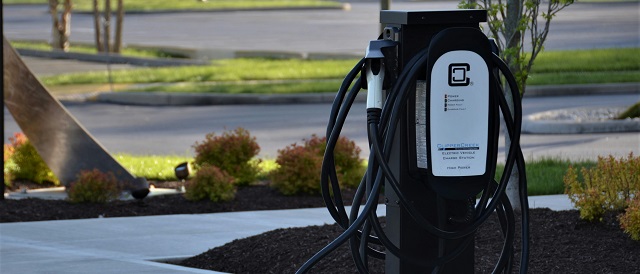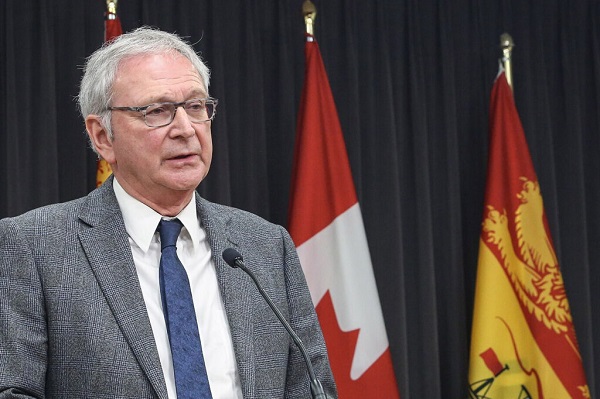National
Canadian Human Rights Commission mocked for attacking Christmas as form of ‘colonialism’
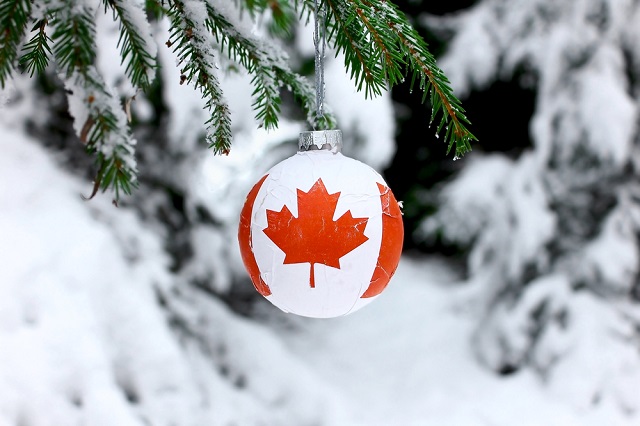
From LifeSiteNews
Citing Christmas as an ‘obvious example,’ the Canadian Human Rights Commission characterized celebrating the birth of Jesus Christ as ‘discrimination’ rooted ‘in Canada’s history of colonialism.’
The Canadian Human Rights Commission (CHRC) is being slammed for suggesting that those who celebrate Christian holidays, including Christmas, are exhibiting intolerance and perpetuating so-called “settler colonialism.”
According to a recent document the CHRC published on October 23, 2023, titled “Discussion Paper On Religious Intolerance,” holidays such as Christmas and Easter are forms of discrimination and religious intolerance.
The CHRC said that observing the birth of Jesus Christ is “an obvious example” of a type of religious bias that is rooted in colonialism.
“Discrimination against religious minorities in Canada is grounded in Canada’s history of colonialism,” reads the Commission’s paper.
The CHRC was immediately blasted by Conservative Party of Canada (CPC) MPs and others for being “ridiculous” and “woke.”
“This is ridiculous,” wrote CPC MP Jeremy Patzer on X (formerly Twitter) yesterday in response to the Commission’s paper.
This is ridiculous. Christmas is celebrated all around the world by people of different ethnic and religious backgrounds. This is another example of woke ideology fomenting within the federal government. I for one will be celebrating Christmas whole heartedly. Merry Christmas!🎄 https://t.co/9EtpLuWvRG
— Jeremy Patzer (@JeremyPatzerMP) November 21, 2023
“Christmas is celebrated all around the world by people of different ethnic and religious backgrounds. This is another example of woke ideology fomenting within the federal government. I for one will be celebrating Christmas whole heartedly. Merry Christmas!”
One concerned Canadian said that the CHRC itself is engaging in discrimination for “attacking” Christians’ right to celebrate the birth of Christ, a right Canada has upheld since its founding.
This is a direct attack on the founding beliefs of this country. Western countries, which are thriving democracies, were built by people grounded in Judeo-Christian values. The degradation of the faith, is in and of itself, is intolerant.
— Kerry Ozard (@OzardKerry67475) November 21, 2023
Despite the mainstream push to switch to the term “Happy holidays” in lieu of “Merry Christmas,” a Leger poll from December 2022 found that the overwhelming majority of non-Christian Canadians are content with being greeted by the words “Merry Christmas” during the season of Advent.
When the non-Christians were asked if they were “Offended when people greet me with ‘Merry Christmas’,” 92 said they disagreed with only 8 percent agreeing.
The CHRC is an independent federal institution created in 1977 that oversees holding up Canada’s human rights laws.
The CHRC claims that the history of holidays “manifests itself in present day systemic religious discrimination. An obvious example is statutory holidays in Canada.”
“Statutory holidays related to Christianity including Christmas and Easter are the only Canadian statutory holidays linked to religious holy days,” it said.
“As a result non-Christians may need to request special accommodation to observe their holy days.”
The European settlers that came to Canada, from France and then later from what is the modern-day United Kingdom, were Christian and included missionaries who came to try and spread the faith to the local indigenous populations.
Canada has observed Christmas since 1641, well before its official founding, according to some historical records. Despite this, the CHRC said that the nation’s “history with religious intolerance is deeply rooted in our identity as a settler colonial state.”
In 2021, a federal court directive mandated that all references to Christmas holidays be removed from all court calendars, however, this directive did not come from a complaint but instead was an internal decision.
COVID-19
Trudeau government only sought legal advice after Emergencies Act was invoked, records indicate
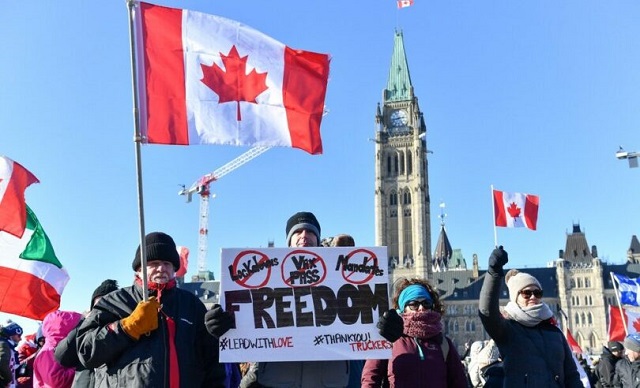
Canada’s Freedom Convoy in Ottawa Minas Panagiotakis/Getty Images
From LifeSiteNews
The two-page Memorandum For The Attorney General was dated February 15, 2022, and was written by the deputy director of prosecutions. The date of the memorandum is significant, as it comes after Trudeau had invoked the EA on February 14.
A Conservative MP’s request for information has revealed that the cabinet of Prime Minister Justin Trudeau waited until after it had invoked the Emergencies Act (EA), which was done to take down the peaceful Freedom Convoy, to get legal advice from Canada’s Attorney General on whether its use was lawful.
As noted in a recent Blacklocks’s Reporter article, Access To Information records obtained by Conservative MP Arnold Viersen from the office of the Attorney General confirm what many MPs have been suspicious of for years, that Trudeau’s use of the EA was not really warranted.
“I filed an Access To Information request for the memorandum on the Emergencies Act sent to the Attorney General from the Public Prosecution Service,” MP Viersen said in a statement to the media.
“What did they advise the Attorney General? We will never know because Justin Trudeau censored it.”
The documents, despite being censored, do reveal that the two-page Memorandum For The Attorney General was dated February 15, 2022, and was written by the deputy director of prosecutions. The date of the memorandum is significant, as it comes after Trudeau had invoked the EA on February 14.
Trudeau’s Attorney General Arif Virani, during testimony on February 28, said that there was a legal opinion offered regarding whether the use of the EA would be justified, but that its contents had to remain confidential.
This claim of secret legal advice has never been substantiated.
In early 2022, the Freedom Convoy saw thousands of Canadians from coast to coast come to Ottawa to demand an end to COVID mandates in all forms. Despite the peaceful nature of the protest, Trudeau’s government enacted the EA on February 14, 2022. Trudeau revoked the EA on February 23.
Earlier this year, Canada’s Federal Court announced that the use of the EA by the Trudeau government was a direct violation of the nation’s Charter of Rights and Freedoms, and thus was “not justified.”
Of note is that the judge who ruled Trudeau’s government’s use of the EA was “not justified” was Federal Court Justice Richard Mosley, a Liberal-appointed and well-respected judge with decades of experience.
The Trudeau government has since appealed the court’s decision.
I do not ‘believe for a second’ the ‘threshold’ was met to invoke EA
Conservative MP Glen Motz told a February 28 hearing of the Special Joint Committee on the Declaration of Emergency that he did not believe for a “second” that the “broader interpretation even existed,” in terms of the legality of the EA’s use.
“I still believe more strongly today than I did in 2022 that the circumstances to invoke the Emergencies Act were not met,” he said, noting that “The threshold was not met.”
“I agree with Justice Mosley in his decision that it was in fact illegal and unconstitutional,” he said.
The EA controversially allowed the government to freeze the bank accounts of protesters, conscript tow truck drivers, and arrest people for participating in assemblies the government deemed illegal.
Before Mosley’s ruling, an investigation into the use of the EA, as per Canadian law, was launched by Trudeau. The investigation, titled the Public Order Emergency Commission, was headed by Liberal-leaning Judge Paul Rouleau. Unsurprisingly, the commission exonerated Trudeau’s use of the EA.
During the clear-out of protesters after the EA was put in place, one protester, an elderly lady, was trampled by a police horse, and one conservative female reporter was beaten by police and shot with a tear gas canister.
Last month, LifeSiteNews reported that Conservative MP Marilyn Gladu uncovered that the federal government of Trudeau spent $2.2 million in taxpayer money in a failed attempt to try and stop court challenges filed against it for enacting the EA to stop the peaceful Freedom Convoy.
Freedom Convoy leaders Tamara Lich and Chris Barber have been in a ongoing legal battle with federal officials.
COVID-19
More victories for freedom as ArriveCAN charges dropped and fines reduced

Gheorghe and Carmen Neferu
News release from The Justice Centre for Constitutional Freedoms
The Justice Centre for Constitutional Freedoms is pleased to announce that it continues to see dropped charges and significantly reduced fines for Canadians who allegedly violated the Quarantine Act or who chose not to use the ArriveCAN app at Canadian borders.
The Justice Centre has provided defence counsel to eight Canadians who chose not to comply with a mandatory ArriveCAN.
Added together, these eight Canadians received a total of 13 tickets, with combined fine amounts totalling $54,815. Defence counsel provided by the Justice Centre negotiated with the Crown to secure admissions that amounted to fines totalling $1,216, not $54,815. All hearings for these cases were scheduled to take place in April at the Ontario Court of Justice in Mississauga, Ontario.
Here are their stories.
Cory Thorn, along with his wife, Guiseppina Lamacchia, their two small children and Guiseppina’s mother Carmela Lamacchia, were returning from a trip to Italy on September 8, 2022, when they were stopped at the Canadian border. They had not downloaded the ArriveCAN app because they did not feel comfortable with the app. They asked if they could submit the required information on paper but were told they could either use the app or face fines. The three adults were given two tickets each, one for $955 and another for $6,255. Together, the family faced a total of $21,630 in fines for violating two sections of the Quarantine Act: section 58, failing to comply with an order prohibiting or subjecting to any condition the entry into Canada and section 15(1), failing to answer a relevant question asked by a screening officer or to provide the officer with any required information or record. Their trials were scheduled for April 15, 2024. Five of the six tickets were dismissed. Carmela pled guilty to one charge and received a reduced fine of $615.
On September 22, 2022, a mother and her adult daughter, who have requested anonymity, were returning from a trip to Italy when they were each fined $6,255 for failing to use the ArriveCAN app. The women felt uneasy providing private health information through the ArriveCAN app. They offered to provide the information orally to border officials. Their offer was refused. Each had trial dates set for April 23, 2024. The daughter’s charge was withdrawn by the Crown, while her mother pled guilty and paid a significantly reduced fine of $300.
Daniel Sauro and his partner, Gina Campoli, traveling with their one-year-old daughter, returned from a family vacation on September 24, 2022, when each adult was issued a ticket for $6,255 under section 58 of the Quarantine Act for not using the ArriveCAN app. They were uneasy about disclosing private medical information and were concerned about the app’s security. Their trial was scheduled for April 18, 2024 -nineteen months after the tickets were issued. The public health officer did not appear at trial, and so the prosecutor was forced to withdraw all charges.
Gheorghe and Carmen Neferu traveled back to Canada from abroad on August 3, 2022, when they were each given two tickets with fines for failing to use the ArriveCAN app, totaling $14,420 They did not want to answer invasive questions regarding their medical status. Their trials were scheduled for April 8, 2024. The charges against Carmen were withdrawn, while Gheorghe had one charge withdrawn. He pled guilty to the other, paying a reduced fine of $300.
A constitutional challenge to the ArriveCAN app requirement continues to proceed in the Ontario Court of Justice.
Chris Fleury, lead counsel on the Charter challenge to the ArriveCan app requirement, says, “Each and every Canadian who refused to provide their vaccination status via ArriveCAN was also subject to a mandatory 14-day quarantine in addition to their ticket. The quarantine had no scientific or public health basis and was a breach of Canadian’s Charter right not to be arbitrarily detained. While we would have preferred that no one was charged in the first place, we are pleased to see the prosecution taking a more reasonable approach to these cases.”
-

 Brownstone Institute2 days ago
Brownstone Institute2 days agoMedical Elites’ Disgrace Over Ivermectin
-
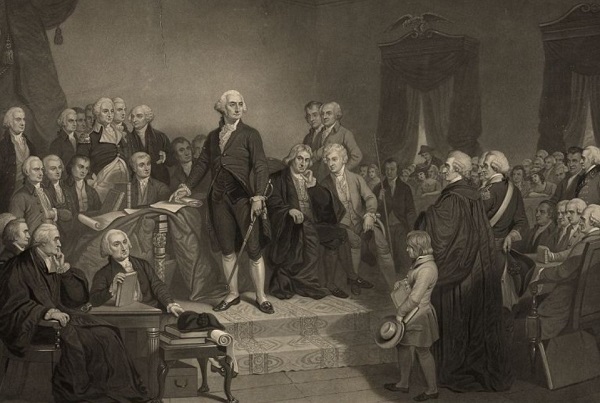
 Opinion2 days ago
Opinion2 days agoThe American Experiment Has Gone Down In Flames
-

 conflict1 day ago
conflict1 day ago‘It Makes No Sense’: Experts Puzzled By Biden Admin’s Claim That Rafah Invasion Wouldn’t Help Israel Defeat Hamas
-

 COVID-191 day ago
COVID-191 day agoThe New York Times Admits Injuries from COVID-19 Shots
-

 Bruce Dowbiggin1 day ago
Bruce Dowbiggin1 day agoWhy Do The Same Few Always Get The Best Sports Scoops?
-

 Energy1 day ago
Energy1 day agoFederal government continues to reject golden opportunities to export LNG
-

 Energy1 day ago
Energy1 day agoBuckle Up for Summer Blackouts: Wind Is Already Failing Texas in Spring
-

 Opinion1 day ago
Opinion1 day agoCanada’s fertility, marriage rates plummet to record lows: report



